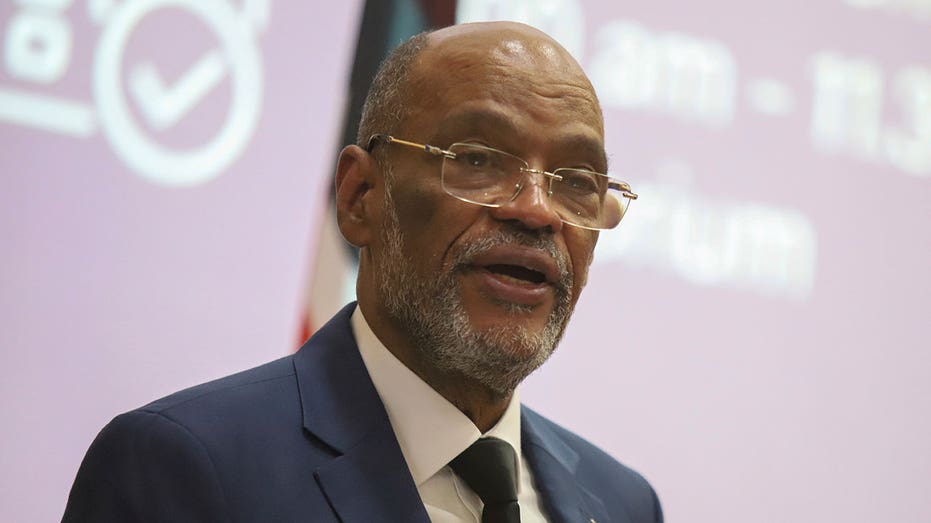Kenya and Haiti sign agreements to revive anti-gang police force plans
Kenya and Haiti signed agreements to address gang violence in Haiti by deploying 1,000 Kenyan police officers. Kenya’s President William Ruto was a witness.

Kenya and Haiti signed agreements Friday to try to salvage a plan for the African country to deploy 1,000 police officers to the troubled Caribbean nation to help combat gang violence that has surged to unprecedented levels.
Kenya agreed in October to lead a U.N.-authorized international police force to Haiti, but the Kenyan High Court in January ruled the plan unconstitutional, in part because of a lack of reciprocal agreements between the two countries.
Kenya’s President William Ruto said in a statement that he and Haitian Prime Minister Ariel Henry witnessed the signing of the reciprocal agreements between the two countries on Friday.
HAITIAN LEADER HEADS TO KENYA IN HOPES OF REVIVING ANTI-GANG POLICE FORCE PLANS
It was not immediately clear how, or if, the agreements could circumvent the court’s ruling, which also said that Kenya’s National Police Service cannot be deployed outside the country.
Kenyan opposition politician Ekuru Aukot, who filed the High Court petition against the deployment, said in a post on X, formerly Twitter, that Henry has no constitutional or legal powers to commit Haiti to any agreements with Kenya.
In a public lecture at the United States International University in Kenya on Friday, Henry said elections in his country need to held as soon as possible to bring stability.
"We need elections in order to stabilize the country. We need democratic governance in order to have people to come and invest in Haiti," he said.
Henry has repeatedly pledged to hold elections since being sworn in as prime minister and interim president after the July 2021 assassination of President Jovenel Moïse. But he and other officials say gang violence has not allowed them to move forward on those promises.
Caribbean leaders said late Wednesday that Henry has agreed to hold general elections by mid-2025.
Henry shrugged when asked if it was safe for him to return home from Kenya following a surge of gang violence in Haiti’s capital Port au Prince on Thursday.
Gunmen shot at Haiti’s main international airport and other targets, including police stations, in a wave of violence that caught many people by surprise. Separately, at least four police officers, including two women, were killed in an attack on a station near the community of Canaan, according to a police union.
ANTI-GANG TASK FORCE AGREEMENT WITH KENYA IN THE WORKS, HAITIAN GOVERNMENT SAYS
The violence forced the airport, businesses, government agencies and schools to close as parents and young children fled through the streets in panic. At least one airline, Sunrise Airways, suspended all flights.
Jimmy Chérizier, known as "Barbecue," the leader of the gang federation G9 Family and Allies, announced in a recorded video that his group's aim was to detain the police chief and government ministers and prevent Henry from returning to Haiti.
"With our guns and with the Haitian people, we will free the country," he said.
Gangs have grown more powerful and political instability has increased since the assassination of President Moïse, who had faced protests calling for his resignation over corruption charges and claims that his five-year term had expired.
More than 8,400 people were reported killed, injured or kidnapped in Haiti in 2023 — more than double the number reported in 2022. The gangs continue to fight over territory, and are estimated to control up to 80% of Port-au-Prince.
What's Your Reaction?
















